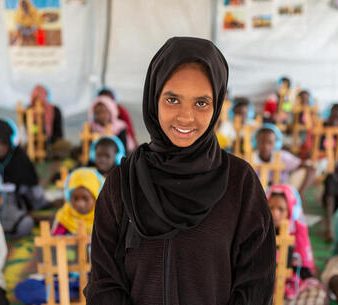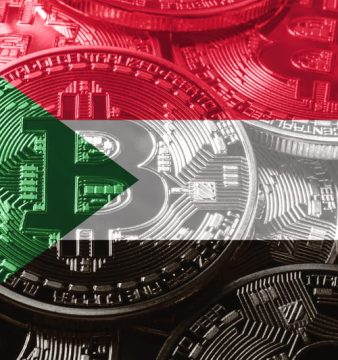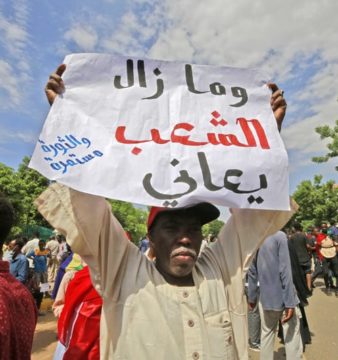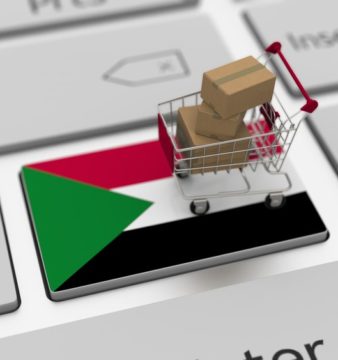SWEA: Empowering Sudanese Women Economists

In the midst of a pandemic, and an ongoing political and economic crisis in Sudan, a platform to empower and advance Sudanese women economists was born. The Sudanese Women Economists Association (SWEA) was founded in June 2020 to bridge the prevalent gap of women economists’ participation in the policy and academic spheres in Sudan.
Having met several years ago at the University of Khartoum (UofK), four Sudanese women, Sawsan Abdul-Jalil, Hala Abushama, Jawhara Kanu and Eiman Osman, came together to create SWEA, a space for Sudanese women economists to grow professionally and personally, through networking, skills enhancing and opportunities mobilising.
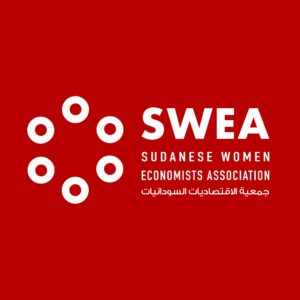
SWEA offers mentoring, networking, knowledge exchanging, capacity building, and research activities and opportunities for female students and graduates. ‘SWEA provides a knowledge sharing platform for women economists, and links professionals with students to develop skills, and to support each other’s work. Additionally, SWEA aims to contribute to the policy dialogue in Sudan by advancing Sudanese women economists and triggering an inclusive policy dialogue for a better future in Sudan,’ said the 25-year-old co-founder, Abushama, who is also an economic consultant at Governor of Khartoum State Office.
‘SWEA is for women economists discussing, learning and talking economics on a broad scale – not only the gender/gender sensitive aspect of it,’ added the 27-year-old co-founder Eiman Osman, who is also a statistics lecturer at UofK, and poverty and equity consultant at the World Bank, Sudan. ‘SWEA serves as a platform to share both academic and professional opportunities, creates mentorship relations and peer to peer support, furthermore, it sheds light on women economists achievements, all three being either limited or to some extent nonexistent in Sudan,’ added the 27-year-old co-founder, economist, development practitioner, and writer Jawhara Kanu.
SWEA operates beyond Khartoum as well. ‘We have partnered with Adeela for Culture and Arts in implementing our first outreach campaign outside Khartoum. Additionally, we are currently in the process of shaping strategic partnerships with other research groups, civil society organisations and in-country international actors; what we hope for is that these partnerships would provide SWEA and its members with research opportunities, networks across the country and resources to initiate more projects,’ said Kanu.
The inspiration
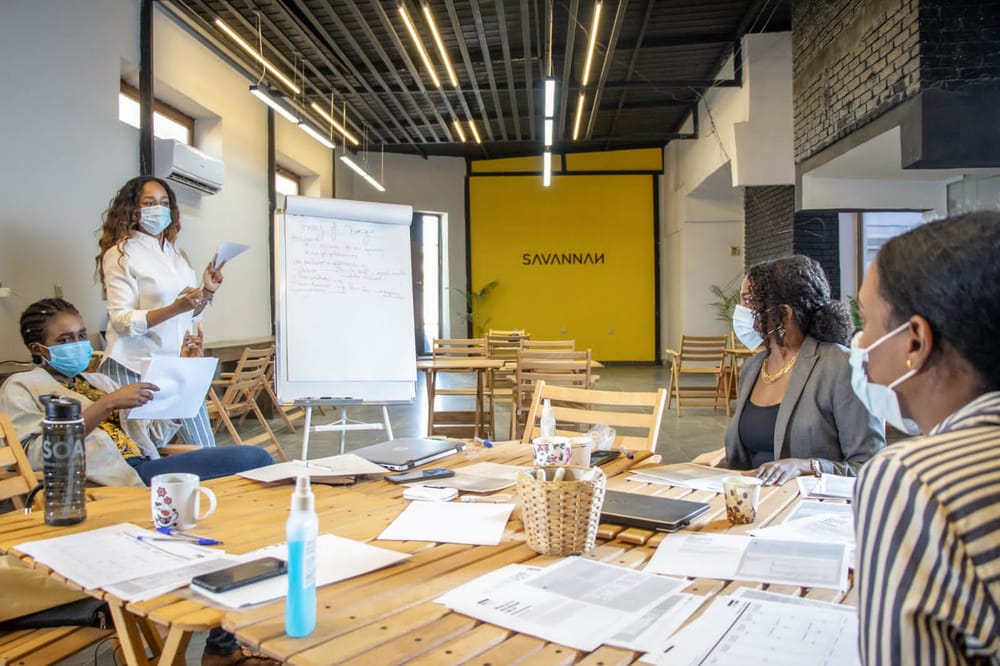
SWEA aims at building capacities, encouraging and amplifying the contributions of women economists, and young women pursuing degrees in economics. ‘I was not really conscious of gender inequalities up to my graduation from University. After finishing my bachelors and embarking on my professional career, I noticed that my male peers and colleagues were having significantly more access and chances to opportunities than equally qualified women,‘ said co-founder Abdul-Jalil, who is also a lecturer at UofK and economic consultant at the Ministry of Finance. ‘For example, I have observed that men have an advantage over women when it comes to networking, as our social and cultural norms in Sudan limit women’s mobility and interactions,’ she added.
Like Abdul-Jalil, gender inequality in Sudan is what inspired Osman to co-found SWEA ‘to help fill the gap of representation and knowledge for Sudanese women economists, as well as to network and collaborate on different projects with them. Being a student at the faculty of economics at UofK, one wouldn’t notice any gender disparity between students, however upon graduating my female colleagues somehow disappeared and/or engaged in other sectors. This may be due to so many factors, but definitely the lack of opportunities and absence of mentoring are playing a vital role,’ she said.
SWEA strives to provide a platform to convene Sudanese women economists, offering networking opportunities and enriching the economic research space by contributions from its members. ‘What inspired me to co-found SWEA was my personal experience with being a finalist at the UofK’s Faculty of Economic and Social Sciences, without having a guidance to what is next – this drew my attention to the need for a pool of women economists who support each other’s growth within the field, and to provide guidance as to how women in economics are capable of growing in the fields of economic research, policy, and public policy,’ said Abushama.
‘In addition to providing guidance to younger economists, what inspired me was three things,’ said Kanu. ‘Firstly, my curiosity to know the whereabouts of the other fellow women economists; I personally know many great Sudanese women economists, but then I would look around in the policy sphere, where macroeconomic decisions are taken and public budgets are being discussed and not find any. Secondly, I was also curious to know what possible networks we could establish and how we could support each other based on our mutual struggle, if I may say, within the field. Finally, back when I joined the faculty, most of the high school graduates were not fully aware of the prospects of the field, the lack of information of possible career paths in the country and absence of relatable role models deemed Economics to not always be the first choice of those joining the faculty, it was not celebrated as other disciplines nor appreciated as much,’ she explained.
Women in economics
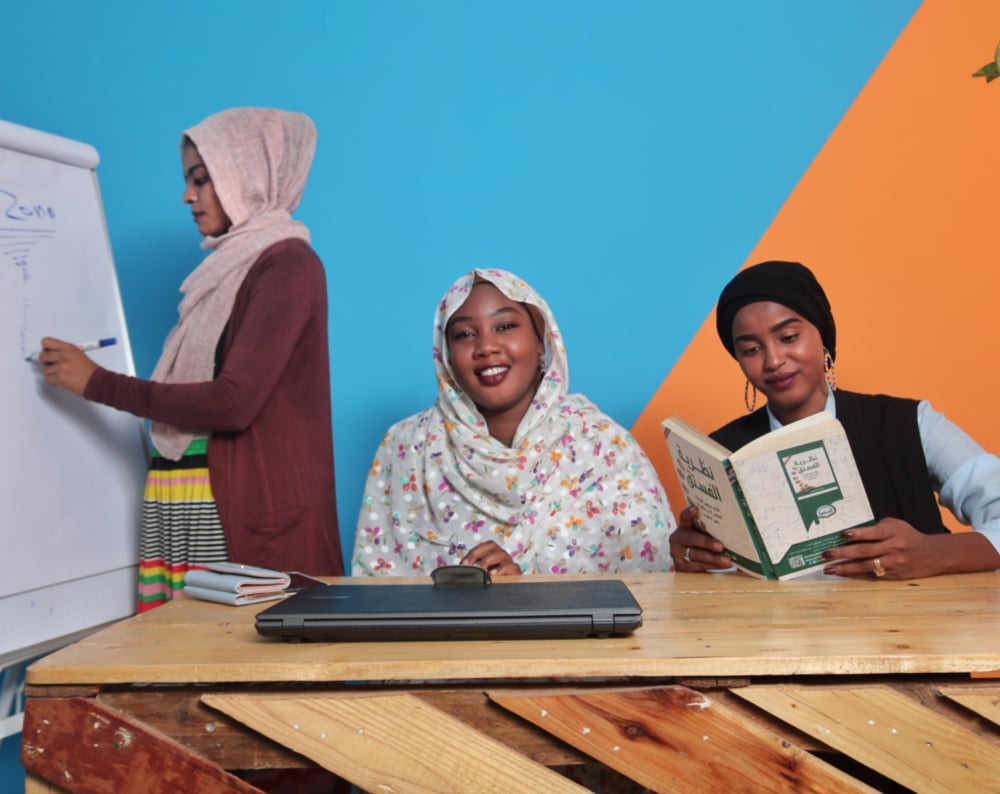
The economy of Sudan is composed of a mostly male workforce. Most of Sudan’s female population pursues an education as well as careers in agriculture, medicine or engineering. In the world of economy in Sudan, there a few well-known female figures such as Professor Bodour Osman Abu Affan, who died of cancer in 2010 aged 67. In addition to her activism in women’s rights, empowering women in business and economy, her career flourished in the field of development economics, both nationally as the director of the Social and Economic Research Council in Khartoum, and internationally as the first female vice-president of operations at the African Development Bank (ADB) in Abidjan, Ivory Coast.
‘Women’s underrepresentation in economics (and in public life, in general) is a complex issue that requires a lot of unpacking and detangling at all levels and contexts (micro/ macro, rural/urban, students/professional…etc). Our mission in SWEA is not only to address the outcomes, but also to look at the roots of the problem,’ said Abdul-Jail.
‘Women are excluded from decision making and policy dialogue largely – sure, there are women across various public policy spheres, but the extent to which they are at decision levels is limited, and in turn amplifies the gender disparity in Sudan,’ explained Abushama. ‘Furthermore, women in economics in Sudan often resort to other professions, mostly because there is no guidance, or support, for further engagement in public policy and economic research for these women. These challenges can be faced when more women are encouraged to undertake economic research through equipping them with the necessary tools, and key entry points to being an “Economist”, and saturating the field with women economists who contribute to inclusive and gender equitable growth,’ she added.
Born in COVID-19
SWEA was established in June 2020 as the COVID-19 pandemic continued to spread across Sudan with more than 9,663 positive cases and 604 deaths at the time. Today, there are more than 20,000 cases in Sudan with 1,307 deaths and more than 11,340 recoveries. ‘It wasn’t easy to create this network when we first started. Everything had to be virtual, and considerate of the implications of the pandemic on our operation. However, what kept us going was how timely and necessary this initiative is at such a time where the global economy is under threat of the pandemic, and even more so Sudan,’ said Abushama.
However, according to Abdul-Jalil, the pandemic worked to their benefit. ‘Ironically, I think the pandemic actually helped us setting up SWEA. We all had the idea of establishing a body for women economists in Sudan lingering in our minds for a while. However, the resulting personal and global disruption from the pandemic provided us the chance to slow down and revisit our ambitions and dreams. I anticipate the pandemic economic crisis will affect our income stream, but we are an innovative and flexible group and we will adapt our work accordingly. Osman shares Abdul-Jalil’s sentiment. ‘It was challenging indeed, but we managed to use it in our best interest. During the lockdown, we barely met face-to-face for the establishment phase, so we mainly relied on online platforms. However, poor connection and regular power cut-offs were hindering our progress; we were planning our meetings depending on the scheduled power outage. But I can also say the pandemic contributed to our fast recognition from different development actors and donors as people using social media more often than before,’ she explained.
Beyond 2020
Only six months since its establishment, SWEA has already trained at least 40 girls on research proposal writing in Nyala, Al Fasher, Kassala, and El Gadarif. ‘We feel like our decentralised approach to building capacities of women in economics. we have so much more down the pipeline for 2021,’ said Abushama.
‘We have a couple of projects on the pipeline: one is a capacity building programme in public and development policy, another will be a podcast on current economic issues in Sudan,’ said Abdul-Jalil.
For more information on SWEA, visit sweasd.org, or find them on Twitter @SWEA_Sudan, Facebook and Linkedin.

